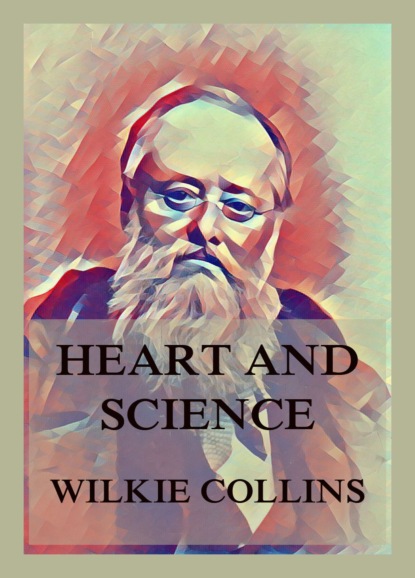
Heart and Science скачать fb2
Уилки Коллинз - Heart and Science краткое содержание
Mr. Wilkie Collins has here presented us with a 'novel with a purpose', and yet he has sacrificed none of his freedom and adroit resource of treatment. He has evidently, as he claims in the preface, devoted far more time and care to the study of character than in some former cases; but he is as ingenious as ever in managing his plot, in working one incident into another, and surprising us with developments which nevertheless have been well prepared for. His psychology in this case is closer and more realistic than we remember aforetime; though perhaps a certain section of the medical profession may feel a call to fight hard with him over some points. For he aims at exposing the dehumanizing effects of vivisection, believing with Dr. Haughton that persevered in without very effective checks on the side of ordinary sympathy, it may soon transform a man into a devil. But Mr. Wilkie Collins's great art is seen in tracing the purely psychological lines of the novel, a romance pure and simple, which cannot but affect the most ignorant and stolid. Readers who will not appreciate many of the points so cleverly made against vivisection, will sympathize with Hope Vere and Carmina in their sufferings and their final deliverance; with Miss Minerva, the governess, in her notable triumph over selfish passion; with poor Mr. Gallilee in his awkward position, and his noble decision though taken late; and with 'Zo' in her naive simplicities, and odd likings and dis likings, and her untainted healthy impulse, which enables her unconsciously to act with decision in a critical moment. It would not be fair for us to outline Mr. Wilkie Collins' well-laid plot: suffice it to say that in Mrs. Gallilee, the gradual ossification of the heart and healthy sympathies through excessive de mand for knowledge and the power it is supposed to bring with it, is a most original study—the gradual slipping into crime itself seeming to be but a necessary outcome of the false theory of life she has sought to exhibit in practice. Dr. Benjulia, who isolates himself in his big laboratory, and is keen to wink at bad practice in poor practitioners like Null that he may carry on his own experiments in brain disease, is drawn with decisive pencil; and Mr. Le Frank forms as original a villain as Carmina's old Italian nurse does an attached dependant. Mr. Mool, the lawyer, is one of the weakest characters, but luckily very much does not depend on him. Mr. Collins expresses his thanks to Miss Power Cobbe and some others for aid given to him: he will doubtless furnish them with aid in their noble crusade against scientific cruelty. On the whole, Mr. Collins has secured success in a most difficult experiment; one chief cause of which is that he has dealt with results and general impressions, leaving detail of technicalities behind. The story is strong as a story; and only those who have more or less deeply into the subject will be able to realize the labor Mr. Wilkie Collins has gone through by way of preparation for this work.
Скачать книгу «Heart and Science» Уилки Коллинз
Чтобы оставить свою оценку и/или комментарий, Вам нужно войти под своей учетной записью или зарегистрироваться
![Лунный камень [текст оригинала] Лунный камень [текст оригинала]](https://knigism.online/covers/db/57/13186_200x300.jpg)






